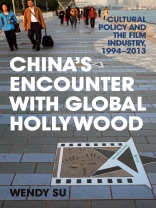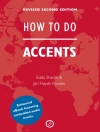In recent years, the film industry in the People’s Republic of China has found itself among the top three most prolific in the world. When the Chinese government introduced a new revenue-sharing system in 1994, the nation’s total movie output skyrocketed with gross box-office receipts totaling billions of yuan. This newfound success, however, has been built on an alternately competitive and collaborative relationship between the ascendant global power of China and the popular culture juggernaut of America.
In China’s Encounter with Global Hollywood, Wendy Su examines the intertwining relationships among the Chinese state, global Hollywood, and the Chinese film industry while analyzing the causes and consequences of the rapid growth of the nation’s domestic film production. She demonstrates how the Chinese state has consolidated power by negotiating foreign interest in the lucrative Chinese market while advancing its cultural industries. Su also reveals how mainland Chinese and Hong Kong filmmakers have navigated the often-incompatible requirements of marketization and state censorship.
This timely analysis demonstrates how China has cannily used global capital to modernize its own film industry and now stands poised to step clear of Hollywood’s shadow. The country’s debates—on- and offscreen—over cultural change, market-based economic reforms, and artistic freedom illuminate China’s ongoing efforts to build a modern national identity.
Tabella dei contenuti
Introduction
Cultural Policy as Negotiation of Power: The Chinese State’s Role and Strategies in Its Tug-of-War with Global Hollywood
The Debate about Hollywood
The Film Industry as Negotiation of Space
Artistic and Critical Cinema under a Triple Threat: Marketization, Hollywoodization, and State Censorship
Chinese Martial Arts Cinema in the Twenty-First Century: Hybridity and Soft Power
Conclusion: The Chinese State, Hollywood, and Postsocialist Modernity
Circa l’autore
Wendy Su, assistant professor of media and cultural studies at the University of California, Riverside, is a winner of the Pacific Affairs William J. Holland Prize.












